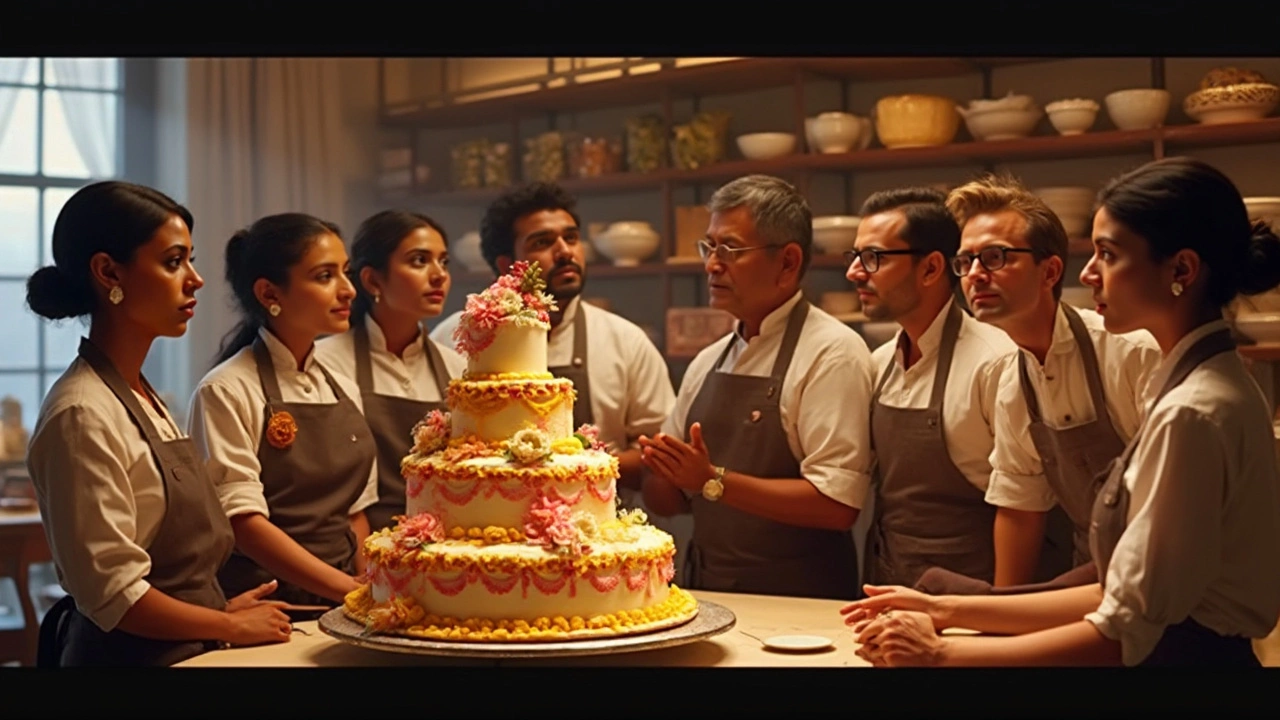Bakery Slang: What It Means for Your Wedding Cake
When working with bakery slang, the informal language bakers use to describe textures, techniques, and decoration styles. Also known as cake talk, it helps professionals communicate quickly about design details. If you’ve ever heard bakery slang on a catering call, you know it can sound like a secret code. Wedding cake, the centerpiece dessert that reflects your theme, flavor preferences, and budget is the most common context where this code shows up. Terms like “batter‑up,” “crumb coat,” or “finished flush” tell a baker whether you want a soft sponge, a smooth buttercream base, or an even edge on each tier. Cake cutting speech, the short toast or funny line you say while slicing the first piece also borrows slang; a “first slice” might be called the “break‑in,” and a playful “sweet spot” refers to the perfect moment to start the cut. Even wedding flower, the floral arrangements that complement the cake and overall décor have their own lingo—“bud‑burst” for a rapid growth of small blossoms, or “petal‑glaze” for a glossy edible coating that mimics real flowers. Understanding these terms creates a clear chain of communication: bakery slang encompasses specific jargon, it influences how you discuss your wedding cake with vendors, and it ensures your cake cutting speech and flower choices match the overall aesthetic. By learning the most common phrases, you can avoid costly revisions, keep the timeline on track, and feel confident that the final product matches the vision you imagined.
Why Knowing Bakery Slang Saves Money and Reduces Stress
Most couples think the biggest wedding expense is the venue, but a misinterpreted cake order can quickly become the hidden budget buster. When a baker hears “light whip” without clarification, they might use a low‑fat buttercream that looks smooth but lacks the richness you expected, leading to a last‑minute redesign. Knowing that “light whip” means a whipped buttercream with a higher butter‑to‑powdered‑sugar ratio helps you set realistic cost expectations. Similarly, asking for a “naked tier” without specifying the degree of frosting exposure can result in a cake that looks too sparse or too frosted, both of which affect the amount of buttercream needed and the labor hours involved. By using precise slang—like “semi‑naked 30% coverage”—you give the baker a clear target, which translates into accurate pricing and fewer surprise fees. Another common pitfall is the “floral‑edible” request. Some bakers interpret “edible flowers” as fresh blooms placed on top, while others see it as sugar‑crafted petals. When you say you want a “real‑petal finish,” the baker knows to source pesticide‑free blooms, which may add a modest surcharge, but you avoid the disappointment of receiving artificial sugar flowers that don’t match the bridal bouquet. The same principle applies to the cake cutting speech. If you ask for a “classic toast,” the planner might prepare a formal, rhyme‑free script, whereas a “quirky one‑liner” cues the baker to cut a small decorative “speech slice” that can be showcased on Instagram. Clear slang lets the entire team—bakery, florist, and MC—work from the same playbook. Lastly, bakery slang isn’t just about avoiding mistakes; it can actually enhance creativity. When you tell your baker you love the “marble matte finish,” they might suggest a textured buttercream dyed with natural pigments that mimics marble stone—an upscale look that often costs less than a custom fondant hand‑painted design. Knowing the term lets you tap into the baker’s expertise and discover options you never imagined. In short, mastering bakery slang turns a confusing language barrier into a collaborative toolbox, enabling you to keep your wedding cake on budget, on schedule, and exactly how you want it. Now that you see how the right words shape every step—from the first tasting to the final slice—it’s time to explore the articles below. They dive deeper into budgeting tricks, editing wedding photos, outfit advice, and more, giving you the practical insights you need to pull off a stylish, stress‑free celebration.
Dive into the surprisingly complicated meaning behind 'cake eater' in the wedding cake industry. Discover why this phrase offends some bakers, where it comes from, and how it's used today. Learn about the hidden culture and lingo inside bakeries. Get practical tips to avoid putting your foot in your mouth when talking to cake makers. This is the real dish on a term you don't want to toss around carelessly.
